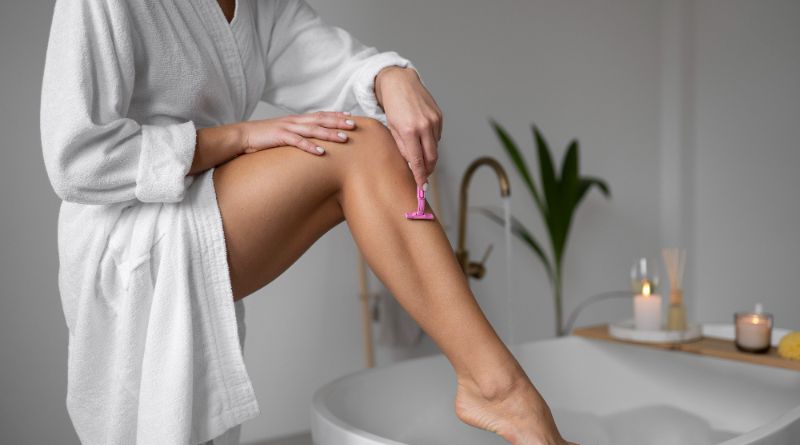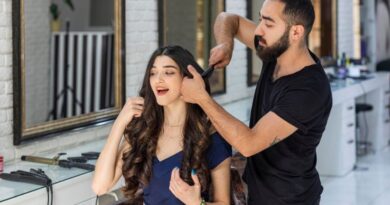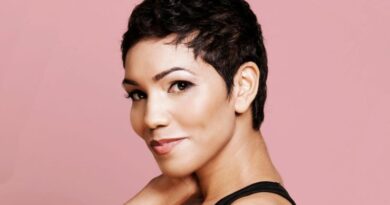It’s a dilemma that women have been grappling with for centuries – does shaving make hair thicker? The debate over whether shaving makes hair thicker is a long-standing one, with plenty of myths and misconceptions surrounding it. The answer is complicated, and there are some unique points to consider when deciding whether or not to shave. Many people believe that when they shave, the hair grows thicker and darker, leading to concerns about unwanted hair changes. This blog post aims to shed light on the topic and provide clarity about the effects of shaving on hair thickness. We’ll explore the science behind hair growth, the factors influencing its appearance, and whether shaving plays a role in this process.
Understanding the truth about shaving and hair thickness can help you make informed decisions about your grooming routine and dispel common misconceptions. So, let’s get to the root of this age-old question and separate fact from fiction. Read on to find out how shaving can change your body hair!
What happens to your hair after you shave it?

According to Annie Gonzalez, MD, a board-certified dermatologist at Riverchase Dermatology in Miami, shaving has no effect on the pace of hair development, color, or thickness of hair.
The hair follicles continue to grow under the skin after shaving. “This results in irritation of the hair follicles, which may result in irritation, itching, or unpleasant red bumps,” she explains. Itchy skin after shaving can be caused by a number of factors, including shaving wrongly or razor burn.
Ingrown hairs, cuts, and acne are some of the other unwanted effects of shaving.
Is it true that shaving makes your hair thicker?
The fact is that shaving your hair does not cause it to grow back thicker or at a faster rate, contrary to popular perception. In reality, clinical tests Trusted Source conducted in 1928 dispelled this common misperception Trusted Source.
Nonetheless, the legend endures nearly a century after its inception. Because hair regrowth after shaving is typically different in appearance, it is possible that this is the reason.
Learn why this is the case, how you can achieve a better shave, and what the genuine adverse effects of shaving can be by reading this article.
Is it true that shaving undesired body hair causes it to regrow thicker and darker?
It does not — shaving does not alter the thickness, color, or pace of development of hair.
Shaving facial or body hair gives the hair a blunt point, which is not desirable. For a short period of time, the tip may feel harsh or “stubbly” as it grows out. Although the hair may be more apparent and appear darker or thicker at this phase, this is not the case.
If you detect a sudden rise in the amount of facial or body hair on your face or body, consult your doctor. An untoward reaction to drugs or evidence of an underlying medical issue are both possibilities. Your doctor may also be able to give you with information on other hair-removal treatments.
Quick Link: how long to wait to wash hair after coloring
Is it true that shaving causes my hair to come back faster?
The rate at which hair grows back is primarily influenced by your genetics, and shaving itself does not alter this fundamental process. Your genetic makeup plays a significant role in determining the texture, density, and regrowth patterns of your hair. Variations exist among individuals when it comes to the amount of body hair they have, the thickness of that hair, and how quickly it grows back.
For instance, someone with naturally dark and dense body hair may find that they don’t need to shave as frequently as someone with finer, lighter-colored body hair. This genetic variation in hair characteristics holds true for both men and women.
Understanding these genetic factors can help you manage your grooming routine more effectively and tailor it to your unique needs. It’s essential to appreciate that while shaving can give the temporary illusion of faster regrowth, the underlying speed and characteristics of hair growth are primarily determined by your inherited traits.
Why does hair regrow more quickly in some regions of the body than others after shaving?
Just as individuals can experience variations in the rate of body hair growth, the speed at which hair regrows can also differ across different body areas. This discrepancy in growth rates depends on the specific location. For instance, armpit hair typically exhibits a faster regrowth rate, approximately 50 percent faster than the hair on our legs. This difference in regrowth speed can be quite significant.
As a result, if you choose to shave both your armpits and your legs at the same time, you may find that you need to shave your armpits more frequently than your legs to maintain the desired smoothness. Recognizing these variations can help you plan your grooming routine more effectively, adjusting the frequency of hair removal based on the specific needs of each body area. Understanding these differences can save you time and ensure that you achieve the grooming results you desire.
How does hair grow?

Hair growth is a fascinating process that originates from small, bulb-like structures known as dermal papillae. These structures play a pivotal role by sending out specialized cells that eventually form the hair shaft. Once these cells are fully developed, they are propelled upward towards the skin’s surface. It’s at this point that they undergo a crucial transformation. These cells start to produce keratin proteins, the building blocks of hair, and undergo a process called keratinization. This process strengthens and fortifies the hair, making it robust and healthy.
The remarkable journey from the dermal papilla to the fully developed hair strand showcases the intricacy and precision of the body’s natural mechanisms for hair growth. Understanding this process is essential for anyone looking to maintain and nurture healthy, vibrant hair.
Are you curious about whether or not shaving makes hair thicker?
The belief that shaving makes hair thicker is a common misconception. In reality, shaving does not alter the fundamental characteristics of hair growth. Hair follows a natural growth cycle, and when it’s cut, it doesn’t grow thicker. The perception of increased thickness after shaving is primarily due to the blunt ends of the regrown hair. With the natural taper removed, the hair feels coarser, giving the illusion of greater thickness. Additionally, this bluntness can reduce the likelihood of split ends, contributing to the perception of healthier hair.
It’s important to understand that shaving is a safe and effective method for hair removal and should not be a cause for concern regarding changes in hair thickness. The thickness and overall health of your hair are predominantly determined by genetics, hormonal factors, and how well you care for it, rather than the act of shaving.
Shaving and hair: The myths and the truth
The notion that shaving can make hair grow thicker is a common belief, but it’s essential to delve into the intricacies of this claim. Over time, several factors have contributed to the perception of shaving affecting hair thickness. In the past, male celebrities often opted to shave their heads to create the illusion of thicker hair, and today, many men are experimenting with facial shaving to make their beards appear fuller.
However, the reality behind whether shaving makes hair thicker is a bit more complex. The act of shaving itself does not inherently change the thickness of the hair. Instead, it’s influenced by various elements, including genetics, hormones, and individual hair growth patterns. While shaving can temporarily alter the texture and appearance of hair, the fundamental factors that dictate hair thickness remain largely unaffected. To understand the full story, we need to explore the science behind hair growth and the reasons why this myth persists.
The real reason why your hair might appear to be thicker after shaving
Each hair on your body has a natural thickness determined by your genetics and various factors. Shaving doesn’t fundamentally change the hair’s thickness, despite the common perception that it might. What often happens is that when you shave, you’re essentially cutting the hair at its thickest point near the base. This can create the illusion of thicker hair, but in reality, it’s the same hair with a different texture. Many individuals may not notice this change until they see it in the mirror, leading to the perception that shaving makes hair thicker.
In truth, the hair’s core characteristics remain unaltered, and any perceived thickness difference is due to the way the shaved hair grows back. Understanding this phenomenon can help dispel the myth that shaving fundamentally impacts the thickness of your hair.
Read Also: shoulder length half up mother of the bride hair
Is shaving bad for your skin?
Shaving with a razor is an effective method for hair removal as it cuts the hair at the surface, but it also has some consequences to consider. When you shave, not only does it remove the hair from the follicle, but it also strips away some of the natural protective oils that help keep pores clear and prevent bacterial intrusion. This can lead to common issues like shaving rash, ingrown hairs, and razor bumps.
To mitigate these problems, it’s advisable to use specialized shaving cream or gel. These products provide a protective barrier, reducing friction between the razor and the skin, and helping maintain the skin’s moisture balance. By using the right shaving products, you can enjoy a smoother, more comfortable shave while minimizing the risk of these unwanted side effects.
Conclusion
The fact is that shaving has no effect on hair development, despite what you may have heard or read. This long-held notion should not prevent you from engaging in your preferred grooming activities. In conclusion, shaving does not make hair thicker. The belief that it does is a common misconception. Shaving merely gives the illusion of thicker hair due to the blunt edge created when the hair regrows. However, the thickness and color of your hair are primarily determined by your genetics and hormones. Shaving is a safe and effective method for hair removal and should not be a cause for concern regarding changes in hair thickness.
If shaving isn’t providing you with the results you want, try consulting with a dermatologist about additional hair removal techniques. Depending on the skin type, body part, and other factors, they may propose more permanent methods such as waxing or laser removal.
FAQs
Hair may appear thicker after shaving because the cut hair has a blunt edge, making it feel coarser and denser when it first regrows. This effect is temporary and not an actual change in hair thickness.
Shaving does not alter the color of hair. The regrown hair may seem darker, but this is due to the contrast with the lighter, unexposed hair.
The thickness of your hair is mainly determined by genetics and hormonal factors. There is no natural method to significantly increase hair thickness beyond your genetic potential.
Frequent shaving can lead to skin irritation and ingrown hairs but does not have a long-term impact on the thickness of your hair. Proper shaving techniques and aftercare can minimize these issues.







